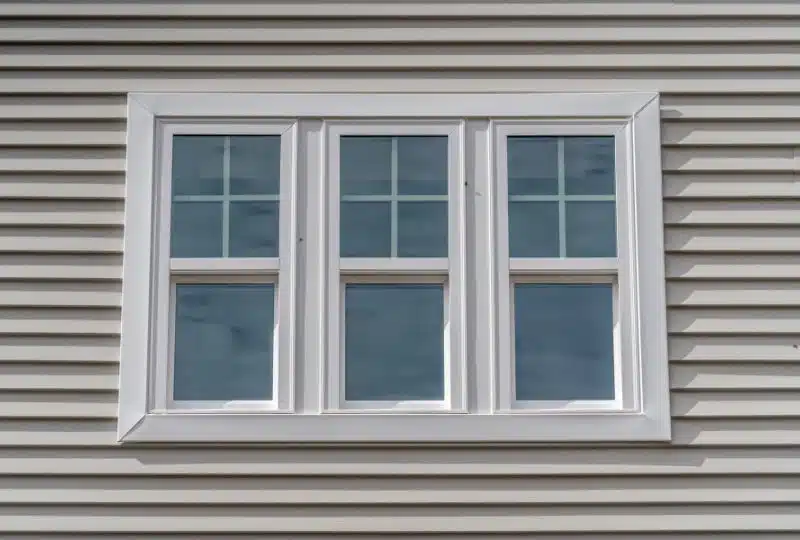
Conserving energy reduces your carbon footprint and your utility bills. Explore features that make windows energy efficient to inform your choice of replacement windows.
Where you put windows in your home has a significant impact on their energy efficiency. Windows on the south-facing wall of a home can allow sunlight to naturally heat the house during the winter months. On the other hand, north-facing windows can help keep a home cool during the summer. Correct window placement can effectively utilize natural light and heat, reducing the strain on HVAC systems.
Windows with multiple panes are more energy efficient than single-pane windows. Double- or triple-pane windows create an insulating barrier that helps keep warm air in during the winter and hot air out during the summer. This feature significantly lowers the energy required to heat or cool a home.
Gas fills and special coatings can also enhance a window’s energy efficiency. Some double- and triple-pane windows contain inert gases like argon or krypton between the panes. These gases have better insulating properties than air. Additionally, low-emissivity (low-E) coatings can help keep heat in a room during winter and reflect it back outside in summer to keep the home cooler.
The material of the window frame plays a crucial role in its energy efficiency. Frames with materials like vinyl or fiberglass provide better insulation than aluminum frames. In fact, vinyl windows evolved as a more available solution to post-war material shortages. Then, they became a more efficient choice during the energy crisis of the 1970s. With ongoing improvements in window technology, vinyl windows are now an affordable, versatile, and energy efficient choice for contemporary homes.
Image Credit: Unsplash
Wood frames also offer good insulation but require more maintenance. Metal frames conduct heat efficiently, which means they allow heat and cold to pass through easily, making them a less efficient choice. Choosing a window frame material that provides good insulation can significantly boost a window’s energy efficiency.
Even the most energy-efficient window won’t perform effectively if its installation is incorrect. Poor installation can lead to air leaks, which can negate the energy-saving benefits of an energy-efficient window. Professional installation ensures the window fits perfectly and creates a seal, maximizing energy efficiency.
These are several features that make windows energy efficient. Knowing about these features helps homeowners make informed decisions when choosing replacement windows for their homes, helping them save energy and reduce utility bills.
You spend a lot of time in your home, so it’s important to create a…
If you love a modern house vibe, you can find several easy ways to update…
Are you looking to spruce up your home without breaking the bank? Home improvements don’t…
Florida, also known as the Sunshine State, boasts a vibrant real estate market filled with…
A backyard fireplace is the perfect feature to take any outdoor space up a notch.…
The kitchen, often referred to as the heart of a home, is where both meals…